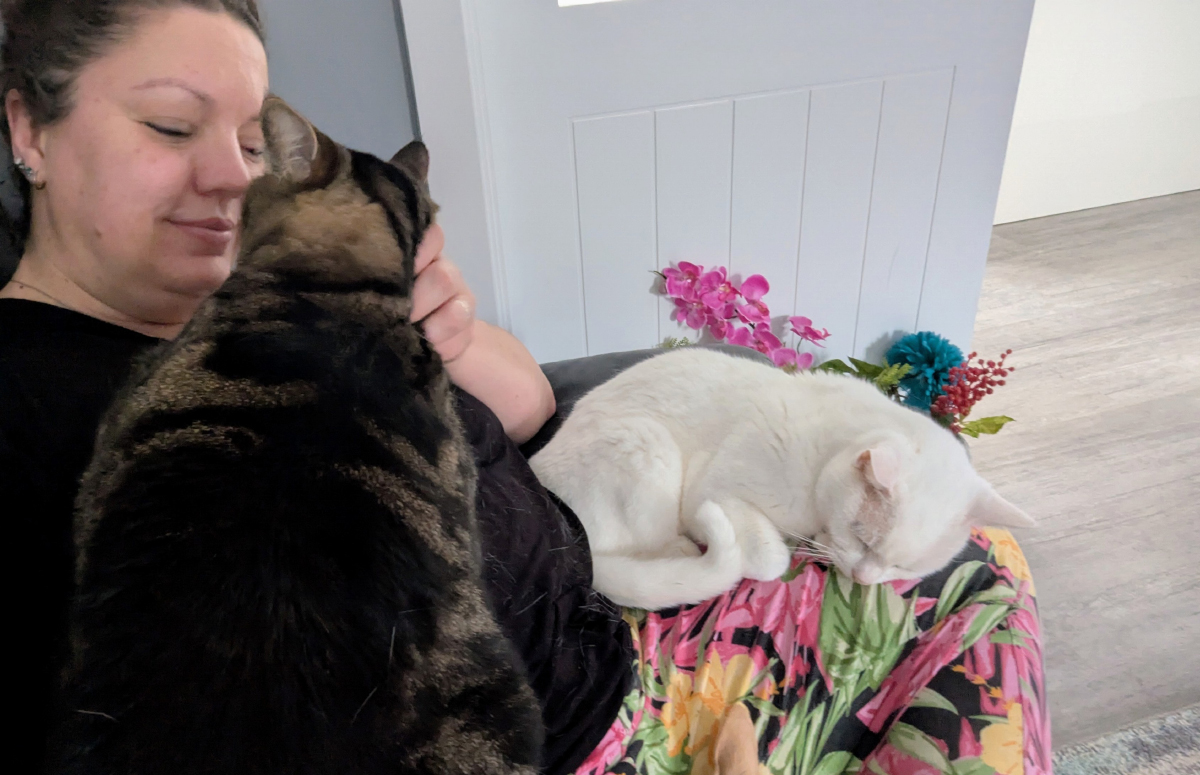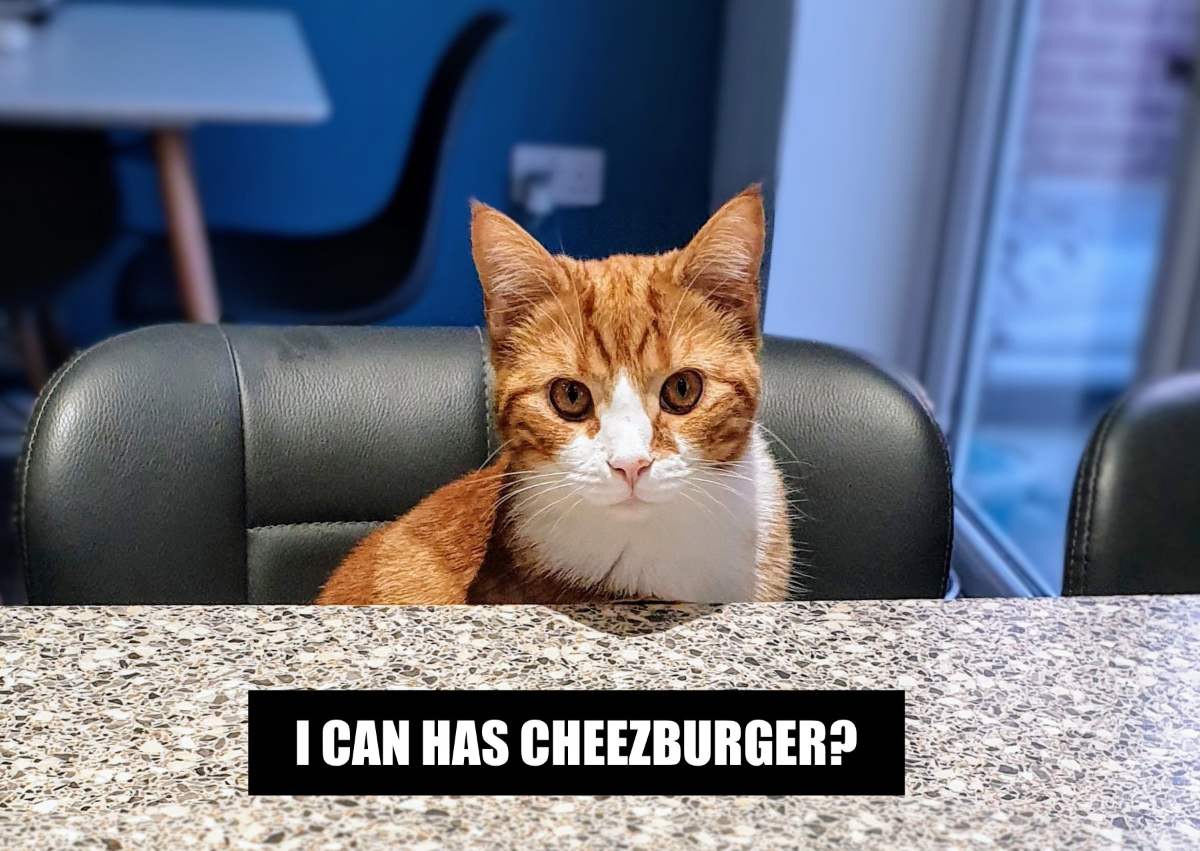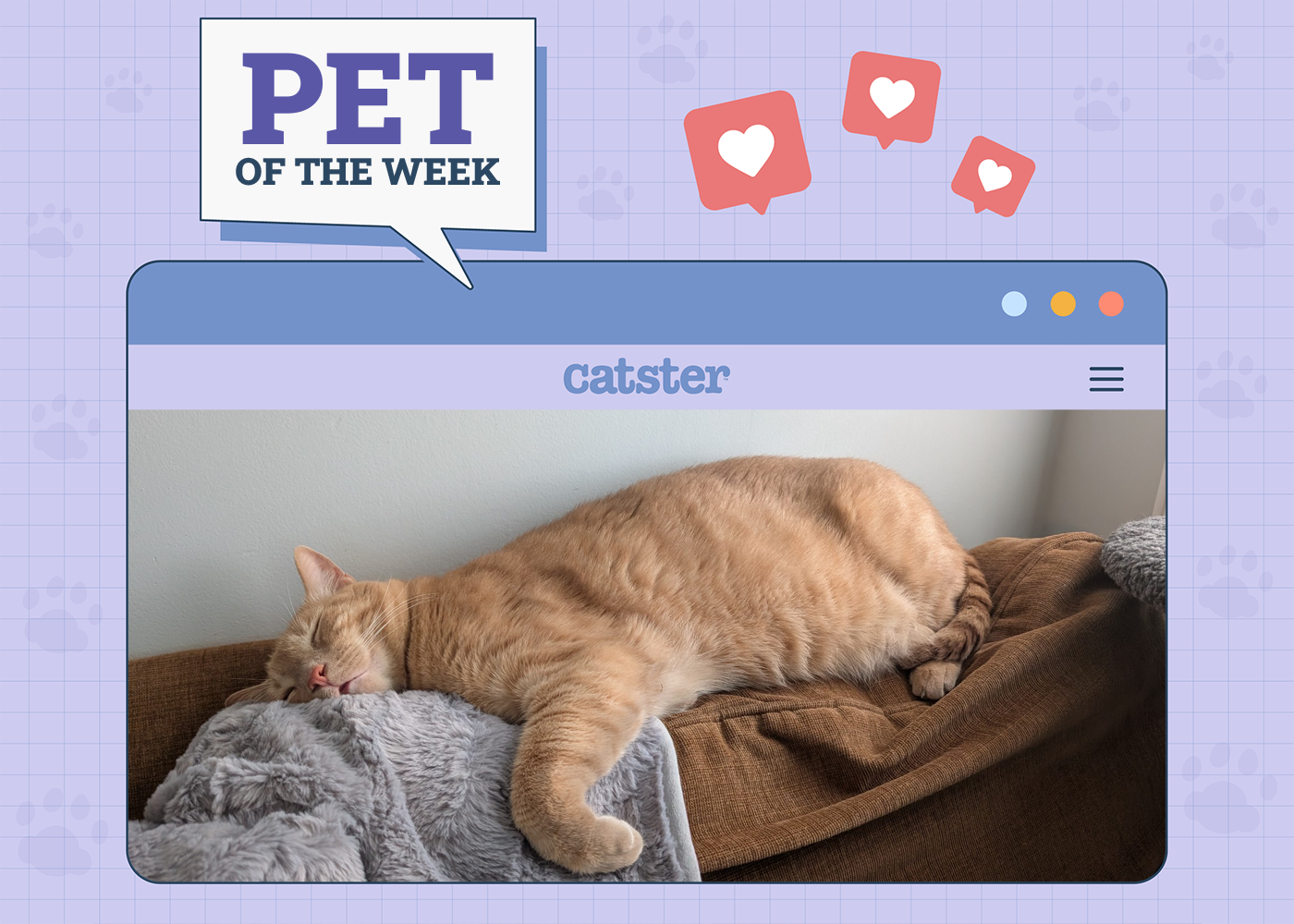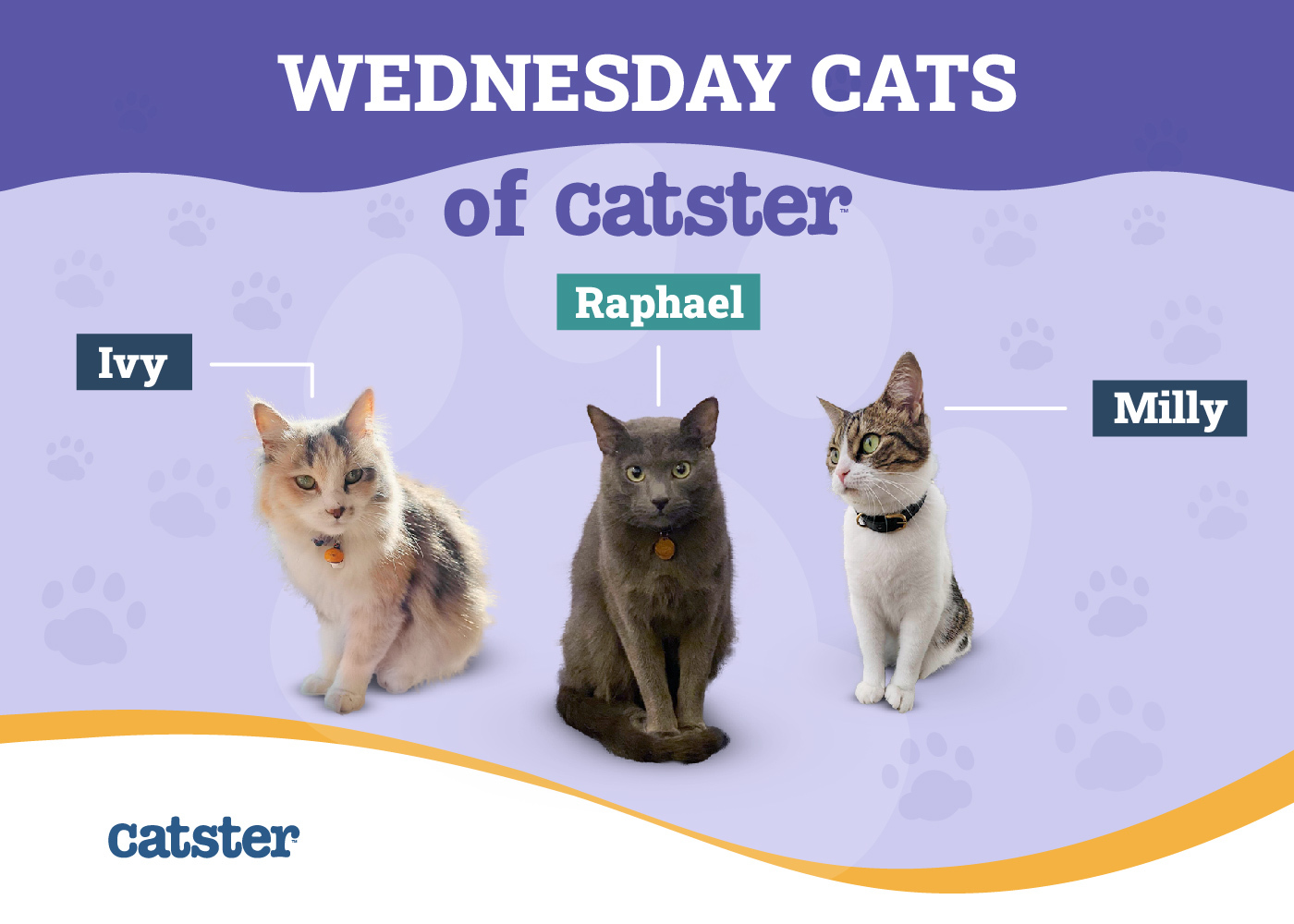Hi, I’m Dr. Karyn! Read my introduction to learn more about me and meet my five hilarious cats: Clutch, Cyril, Alex, Zelda, and Zazzles.
If you have a cat, you’re no doubt familiar with the term ‘cat paralysis,’ or you may know it as ‘lap paralysis’ or ‘feline paralysis.’ If not, go look it up now. Go on, I’ll wait.
Not to be confused with a far more serious neurological condition, cat paralysis stems from the idea that many cats dispense affection in a highly regulated manner, and to interrupt or reject such an offer is a serious offence, liable to be punished with weeks of being treated to a feline cold shoulder. So when a cat decides to make themselves comfortable on your lap, you’d better hope you have a good book or a new TV series to binge, because my friend, you are not going anywhere for a while. And don’t you dare think of shifting your legs; if your leg goes numb, then it goes numb. Suck it up and be grateful.
This phenomenon, while widespread, is not absolute, and there are cats that are not so easily offended or dislodged from the legs of their human servants, and two of them live with me.
Where Did the Idea of ‘Cat Paralysis’ Come From?
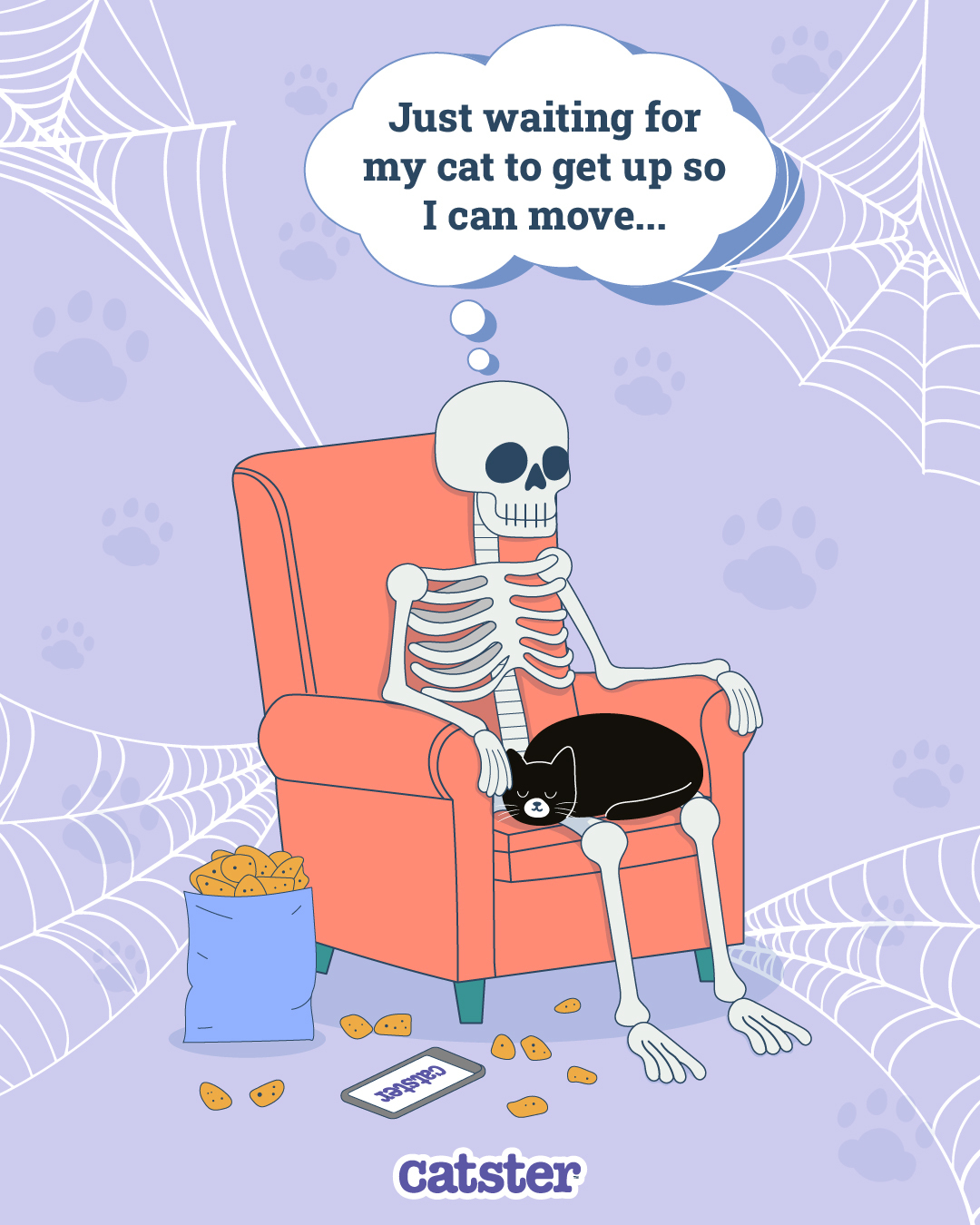
Speaking in sweeping generalizations, dogs tend to be enthusiastic givers and receivers of love and attention; whenever, wherever, no matter what. You can shout, push them away, or force them to watch the movie version of Cats! on repeat, and they will come back, tail wagging, just as keen to shower you with love. Cats, on the other hand, are somewhat more reserved in their affections, with a tendency to do things on their terms only. Upset them, and there’ll be little chance of enjoying any cat cuddles for a while.
When a cat chooses to sit on our lap, it is a privilege that must be respected. Disturb the slumber of a lap-lying cat and it may be days, months, even years, before you are deemed worthy of such an honor again. The trouble is, it seems to take very little to interrupt the sleep of a cat on a lap; a laugh, a sneeze, or a shift in leg position can be enough to send your feline friend running for the hills, leaving behind a furry imprint in your lap and the pain of rejection in your heart.
Over time, we humans have learned that to have the gift of a curled-up cat bestowed upon our laps, we must be silent and still, never making the first move.
The Antithesis of Cat Paralysis
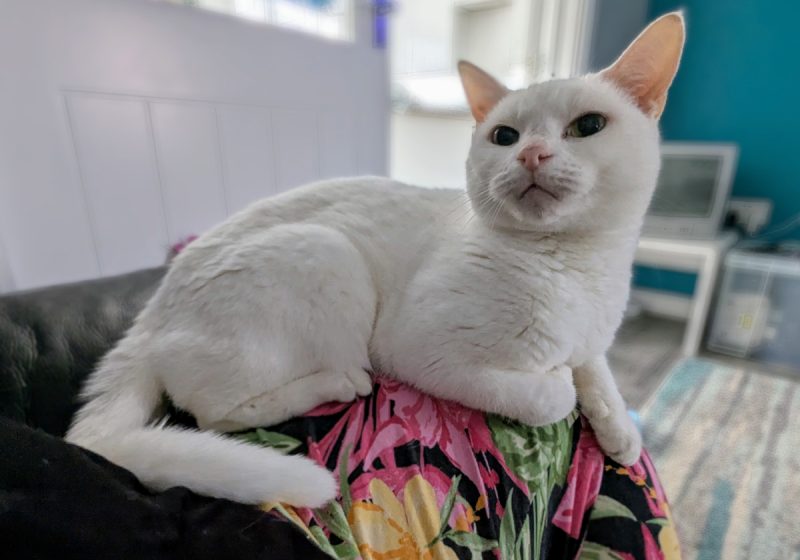
Just as there are cats that will run a mile at the slightest sound or twitch, there are those that will not be moved from their comfortable position, clinging to a lap like a limpet on a rock. In my house, Clutch and Cyril are such cats.
If there is one thing these fluffy boys value above all else – even food – it is comfort.
Both Clutch and Cyril are masters of choosing the worst possible time to make themselves comfortable on my lap, arm, or shoulder. They love a good snuggle, particularly if it impedes my ability to work, eat, watch TV, or doomscroll. Don’t get me wrong; I love getting my fill of Clutch and Cyril cuddles, but sometimes these boys are harder to shake off than a timeshare salesman.
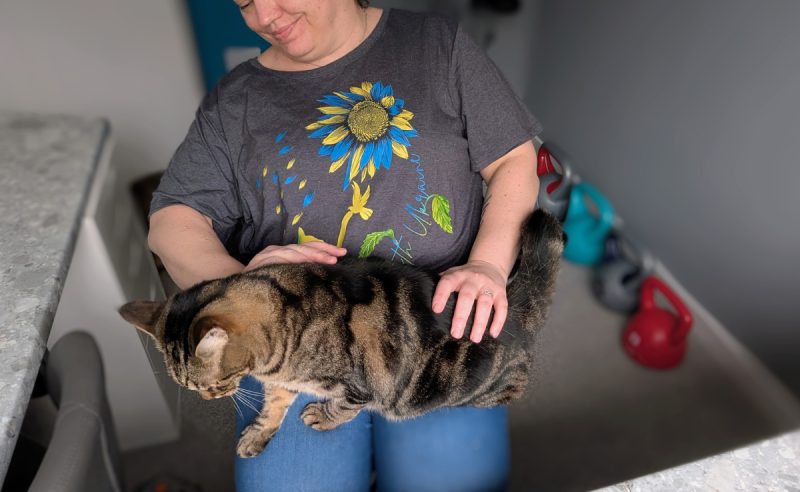
Now that I think about it, I am still suffering from cat paralysis, but of a very different sort. Some people feel trapped in their chairs because of the fear of disturbing their sleeping feline. I’m over here trying to dislodge mine so I can use the bathroom.
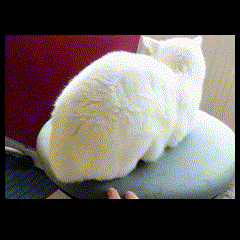
What makes one cat want to disappear at the twitch of a leg, while others will squeeze their eyes closed and pretend not to notice that their sleeping spot is becoming more vertical by the second? Clutch, as we know from his love of being vacuumed and being used as a dog bed, is laid back to the point of being unconscious, possibly as a result of spending the first year of his life as a stray. Cyril has been with us from kittenhood, and, although not quite as unflappable as Clutch, is not easily alarmed. Meanwhile, Alex, who also joined our family as a kitten, is much more wary of loud noises and sudden movements. When he decides to curl up on your lap, it’s a classic case of paralysis if you want those snuggles to last.
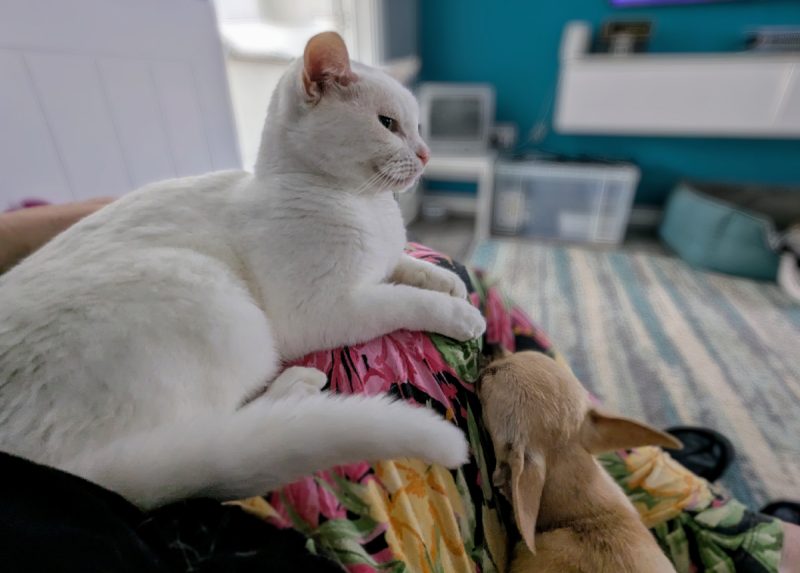
Is it genetics? Did something happen to Alex to make him more wary than his lazy older brother? Or is it just a case of having different priorities?
I love that Cyril and Clutch both feel so at ease in our home and company that they can relax so completely on our laps, but it seems that, no matter what, I will end up feeling guilty. Whether it’s for making that slight move that sends Alex, Zelda, or Zazzles into retreat mode, or for having to physically, almost forcefully, detach Cyril or Clutch from my lap. What’s wonderful is that they keep on coming back.

- Read her previous article: Solving the Mystery of the Messy Bowl: Cats on Camera
- Read her next article: My Cats Try Tofu: A Litter Experiment

